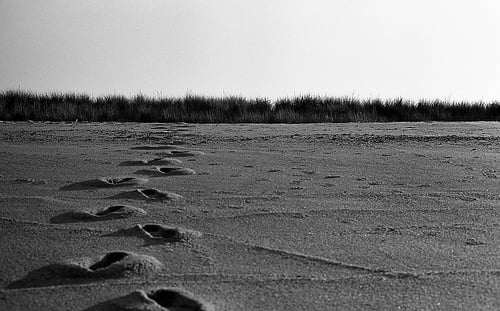Published on
The Journey of a Reluctant Reader to Becoming an Educator and Artist for Reluctant Readers

“Reading is about spending time with characters and entering a fictional world and playing with words and living through a story” (Grossman & Sachs, 2007).
During the first week of classes, I ask my student education majors to recall their best and worst teachers. This prompt generates many confused looks and the question, “Why would you want us to remember our worst teacher?” This forces them to reflect and a reflection on my part, all the way back to elementary school and the path I took through traditional schooling, to creating a theatre company, to an EdD of my own which led me to now helping teachers inspire their reluctant readers.
I share with them my memory of being in fourth grade after three wonderful years as a star student, a young actor, and an avid reader of anything I could find beyond Dick and Jane. Being an only child, I found friendships in books and in my imagination. I had excellent teachers who inspired and supported me during those early years.
Along came fourth grade teacher who completely transformed me. I still remember her face with tiny eyes hidden behind silver glasses and her braided hair in a ring at the top of her head. Strategies used by her stopped my momentum as a learner; but more importantly stopped my interest in reading. In addition to allowing us only to read the books she assigned, she hid a library book that I checked out until the end of the year. My trust for teachers evaporated along with my enthusiasm for learning and reading. From fourth grade to my senior year the only books I read were Up Periscope and War and Peace, which were my choices and were wonderful. I became the student that teachers hoped they don’t get.
Then in college, as a theatre major, I was cast, of all things, as Bassanio in Merchant of Venice. Good grief, a Shakespeare play! I hated reading and especially Shakespeare! Seeing my reluctance and weak reading skills, an acting teacher identified my intense dislike for reading. It didn’t take much detective work to figure that out. This teacher/director took me aside and showed me how to read. For the first time since third grade I found enjoyment in reading again! My thirst for books was revitalized!
What did she do that stimulated this transformation? She taught me how to hear the words on the page, visualize the images, feel the emotions, find my personal reading pace, and connect to the action of the story. Using my assignment of playing Shakespeare for the public, she encouraged and taught me how to ask questions, which is now known as “Questioning the Author” and write responses in the script, which is the strategy known as marginalizing. But in 1970, who knew? Since then, I have not stopped reading. But I still feel reluctant reader pangs when forced to read something that is not of my interest. Don’t we all?
Eventually, my path evolved into being a theatre director, including directing high school musicals and high school English teacher. Here, my life goals became clear as I saw many adolescents who resisted reading books like I did as an adolescent. After getting a master of arts in theatre, the journey took me to redesigning a nationally recognized children’s theatre company that was in existence for over 40 years. The goal was to replace producing fairy tales with adaptations of literature. I found myself having to read works of literature that I ran away from as a child. Treasure Island, Wind in the Willows, the Secret Garden, Charlotte’s Web, Three Musketeers, and The Jungle Book became necessary and enjoyable assignments. Making those works accessible and exciting for young audiences was the objective. Young people—and even teachers—came to the Playhouse because of field trips and did not read the books. How could I encourage people who resisted or struggled with reading find enjoyment in books?
The Playhouse experiences led me to create a new theatre company specifically to address adolescent literacy by engaging middle and high school students, teachers and families. In 1996, an artistic and educational mission to entertain, engage and educate teens, teachers and families became Prime Stage Theatre in Pittsburgh. As its co-founder and Artistic Director, it was essential to develop my expertise in pedagogy, so I completed my education with an Ed.D in Educational Leadership focusing on using theatre to transform reluctant adolescent readers. The concept of reading with a purpose, as well as reading for enjoyment took on a new perspective.
Now I create experiences that combine theatre, which activates the senses, emotions, imaginations, and intellects of its viewers, with literature which enables people to explore and discover new worlds and ideas. This is now more than an objective; it’s a passion. Seeing adolescents who at first will not open a book then find personal relevance, enjoyment and value with a work of literature through theatre is something awesome that this reluctant reader child could never have dreamed to see or much less create. Also, as a professor in an education program, I pass along strategies and passion to teachers and education majors who are jaded because of how the idea of finding enjoyment in reading is not encouraged or taught in schools.
From this journey, a former reluctant reader’s charge to teachers, artists, and all adults is to find ways to enjoy reading. Find your reading pace that fits your interests and your imaginations. Then be a model for adolescents. Pass along your methods to help them find personal ways of discovering images, emotions, actions, ideas, and connections in literature.
Hundreds of surprises occurred because of one acting teacher who showed and supported my transformation from a reluctant reader to an engaged reader. Along this journey, a former reluctant reader continues to find purpose, pleasure and passion for literacy.
– – – –
References
Grossman, L and Sachs, A. July 2007. “Harry Potter and the Sinister Spoilers,” Time Magazine. http://www.time.com/time/specials/packages/article/0,28804,1637886_1637891_1637864,00.html.
Author Perspective: Educator



